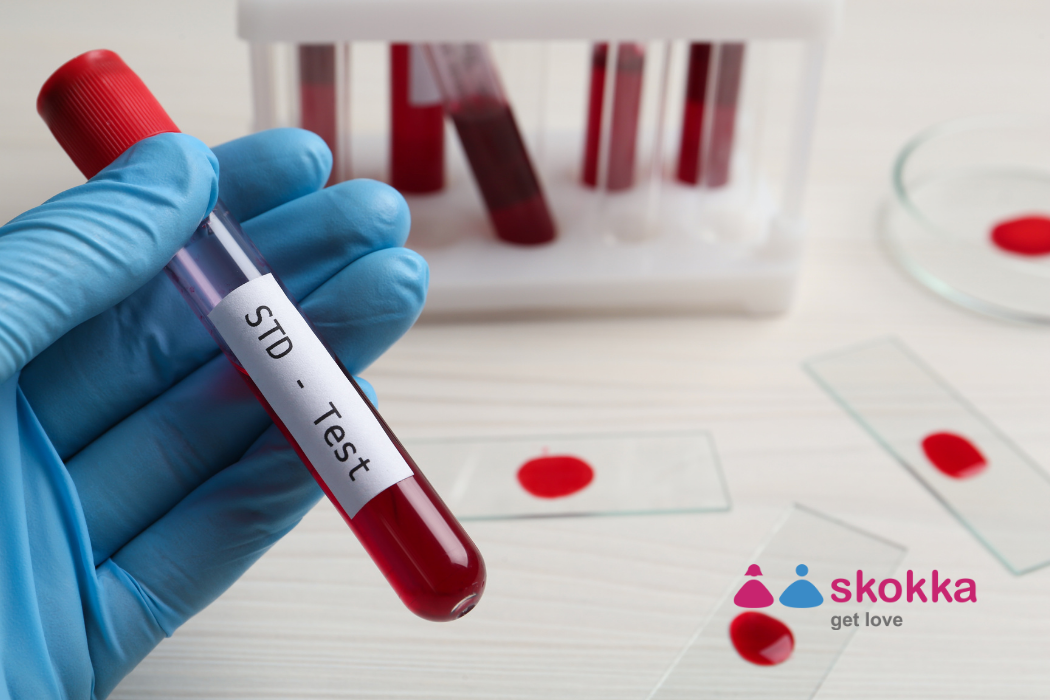Sexual pleasure is a fundamental need for humans, providing numerous benefits for the body and mind. It is scientifically proven that sex contributes positively to mood, blood circulation, sleep quality, longevity, and a wide range of advantages.
However, it is crucial to understand that unprotected sexual practices can result in various Sexually Transmitted Infections (STIs), especially with multiple sexual partners. Therefore, both to preserve your sexual health and to succeed in your journey as a companion, the use of prevention methods, including condoms, becomes essential.

Do you want to know what these methods are and how they can help prevent STIs? Then, follow this article that we have crafted especially for you and discover how to further enhance your sexual health.
The Concept of STIs.
STIs represent conditions caused by viruses, bacteria, fungi, or protozoa, primarily transmitted through unprotected sexual contact, either through shared bodily fluids or direct contact with existing lesions.
There is a variety of STIs, differentiating between curable and incurable categories; some present severe symptoms, while others remain asymptomatic. The World Health Organization (WHO) reports millions of cases of individuals worldwide contracting various types of Sexually Transmitted Infections every day.
Among these infections, millions of cases of HIV (Human Immunodeficiency Virus) transmission stand out, a viral agent that attacks the immune system and can progress to AIDS.
It is important to clarify: What is the distinction between STIs and STDs?
In reality, both acronyms function as synonyms. STIs refer to Sexually Transmitted Infections, while STDs represent Sexually Transmitted Diseases. The currently favored term is STIs, as it covers the possibility that an individual may carry and transmit an infection, even if obvious disease symptoms are absent.rrier and transmit an infection, even in the absence of obvious disease symptoms.
Transmission Mechanisms.
STIs are primarily transmitted through unprotected sexual relations, either by sharing bodily fluids or through direct contact with visible lesions. However, it is relevant to mention that there are exceptional situations in which transmission also occurs through the shared use of sharp objects (needles, syringes, depilatory instruments) or direct contact with the blood of an infected person.
It is crucial to highlight that any sexual practice involving genital organ contact can facilitate transmission, whether oral, anal, vaginal, etc. Therefore, adopting the constant use of condoms, even during oral sex, is of utmost importance.

STI Prevention Strategies.
- Condom Use: It is imperative never to engage in sexual activities without protection. Many diseases can be asymptomatic, and even if you work as a high-level companion, socioeconomic status does not necessarily correlate with sexual health. Acceptance of condom use is essential.
- Avoid Sharing Personal Items: Items such as needles, nail clippers, and razors can act as vectors for STIs. Therefore, when visiting beauty establishments, tattoo studios, or barbershops, always insist on the use of sterilized materials and avoid sharing your personal items with others.
- Regular Testing: Incorporate the routine of visits to specialized doctors, gynecologists, and urologists to request STI screening regularly. The recommended frequency is every three months unless unusual changes in the body occur, in which case immediate medical attention should be sought.
- Immunization through Vaccines: Currently, there are two vaccines available to protect against certain STIs: the HPV vaccine and the Hepatitis B vaccine. Regarding the HPV vaccine, it is available for girls aged 9 to 14, boys aged 11 to 14, immunosuppressed women aged 9 to 45, and immunosuppressed men aged 9 to 26. The Hepatitis B vaccine is mandatory according to health ministry guidelines and is available for all ages, including newborns.
Most Prevalent STIs.
- HPV: This viral infection tends to manifest through lesions, such as warts, on the genital organs. Once contracted, HPV infection is not curable, but ointment treatments can alleviate discomfort associated with the lesions.
- Herpes: Caused by a virus, herpes has a high potential for contagion. It results in small red blisters on the skin (genitals, thighs, and anus) that cause intense itching. When these blisters break, they release highly contagious fluid. Although there is no cure for the infection, there are medications that help control symptoms.
- Viral Hepatitis: Originating from a virus, hepatitis affects liver function and can progress to cirrhosis or even liver cancer if not diagnosed early.
- Gonorrhea: Transmitted by bacteria, gonorrhea usually manifests with pain during urination, yellowish discharge, and, in more severe cases, bleeding. Treatment involves the use of antibiotics.
- Syphilis: Characterized by red spots on the hands and feet, often painless and non-bleeding, syphilis can also lead to complications such as blindness, paralysis, and heart problems. However, proper treatments can offer cure opportunities.
- HIV: Originating from a virus, AIDS is one of the incurable STIs. HIV compromises the immune system, making it easier to contract other diseases. Although not curable, there are medications that aim to strengthen the patient’s immunity.
Conclusion: Protect Your Sexual Health with Wisdom.
Recognizing the importance of preventing Sexually Transmitted Infections is a crucial step in preserving your sexual health and overall well-being. Stay informed about prevention methods, such as condom use, regular screenings, and appropriate immunization. Prioritize self-care and care for your partners, and remember that information is a powerful tool for achieving a healthy and fulfilling sexual life.
Remember: Do not neglect your health! Consult a doctor regularly, understand your body, and, above all, use condoms. No value can replace your well-being and health. Skokka is here to be your travel companion, guiding you toward a horizon of success, satisfaction, and SAFETY. Log in to Skokka and start building your story today. After all, the stage is yours, and the audience is ready.







HIV Prevention: Discover PrEP and PEP as Innovative Methods Beyond Condoms. - Skokka Official Blog
8 January 2024 at 21:05
[…] In 2020, the WHO reported that HIV diagnoses worldwide exceeded 1.5 million, according to published statistics. These figures underscore the importance of maintaining a focus on prevention, even in the most tempting circumstances, and avoiding succumbing to unprotected sexual relations or overlooking alternatives like PrEP and PEP. These methods serve as the barrier separating you from contracting HIV when engaging in sexual activ… […]